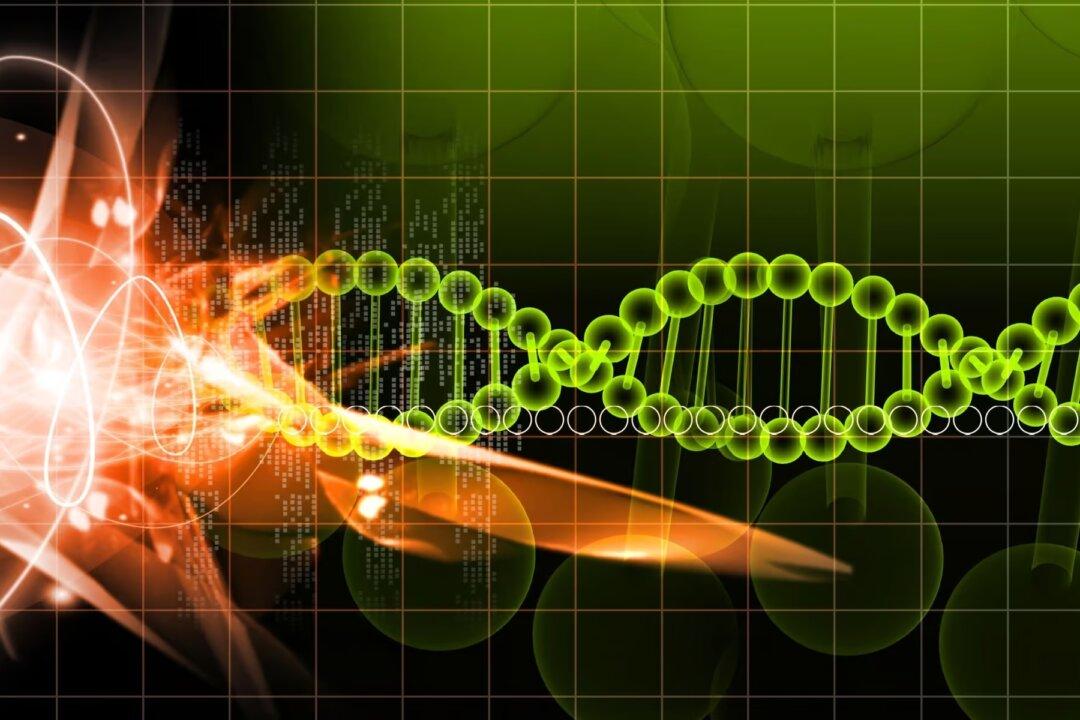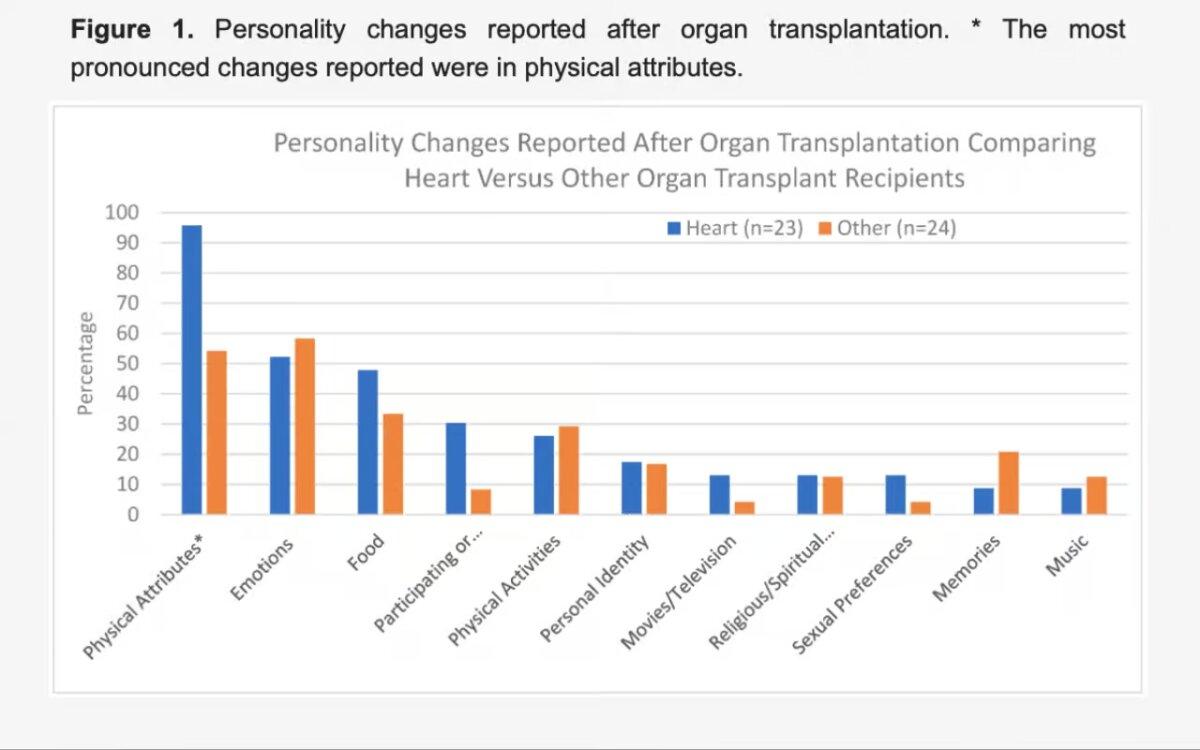It’s well known that heart transplant recipients can experience consequent personality changes. Notably, this study shows that the same is true for other types of organ transplants. Here is a summary of the range of changes observed in the 47 study subjects broken down by heart transplant patients versus other organ recipients.
In all, 87 percent of subjects experienced marked unusual changes that challenged their behavior, sense of identity, and personal preferences. First-person reports and evidence from donor families confirm that some of these effects involve the transfer of personality traits such as food or behavioral preferences from the donor to the organ recipient. For example, an avid meat eater might become a vegetarian who can’t face meat on his plate.
This is an unexpected result that challenges conventional ideas. This study points to the distributed location of memory throughout physiology and its close association with a variety of organ systems. It amply illustrates how little the life sciences understand about the interface between consciousness and matter.
Prior speculations about the origins of these effects had centered around three possible mechanisms—psychological imprinting, cellular biochemistry, and electromagnetic fields. The study results clearly point to the importance of biochemical mechanisms.
The psychological theories center around “magical thinking.” This is the belief that certain words, thoughts, emotions, or ritual behaviors imprint themselves on the world around us. These explanations are vague from a conventional scientific perspective and fail to identify why or how a full range of organ systems might be involved in this process. Nevertheless, they point to the need to integrate our understanding of biochemistry with consciousness.
The previous speculative electromagnetic field ideas about transplant trait transfer have been closely related to the electrical properties of the heart, and fall over now that we know the phenomenon extends to other organs.
The study also points to the networked nature of memory in our physiology. Transferred memories appear to be able in some cases to automatically integrate into the behavioral preferences of the organ recipient, not to say actually take automated control of these behaviors and preferences.
In other words, it seems highly likely that memories are stored in some way in cellular genetic/epigenetic systems, which can assume a measure of control over aspects of human behavior and thinking. If this is the case, there is a lot to unpack.
The implication is obvious; biotech interventions that cross the cell membrane and insert edited cellular genetic material (gene therapies, DNA and mRNA vaccines, gain-of-function viral material, etc.) are even more risky than has been imagined by anyone to date. They could be editing what makes us human.
The transplant article shows that genetic interventions can not only influence our health but also what we do and think.
It’s just a short step now to realize that gene editing, including any sort of editing of the chain of genetic functions within cells, could more or less automatically change our behavior and psychological profile. More importantly, since our knowledge of cellular genetics now appears to be very incomplete, cellular genetic editing, if carried out on a scale commensurate with organ size, can scramble our behavior, thinking, and understanding. It could do so effectively against our will. In other words, it could greatly confuse and stress us or even control us.
It is just one more short step to realize that for a culture with more sophisticated scientific knowledge than we have at present, it might be possible to genetically control the consciousness and behavior of whole populations. A frightening thought.
We aren’t proposing anything illogical or unscientific here. There are parallels with early 20th-century physics. In the face of incontrovertible experimental results, physicists had to incorporate the notion of a conscious observer into the heart of quantum mechanics. Biotechnology is being irreversibly pushed toward an admission that consciousness lies at the heart of biology and the cutting edge of evolution. This is not a radical idea, it is our simple everyday experience as individuals that needs to take pride of place in the life sciences.
In summary, let me make myself clear; the new transplant paper greatly strengthens GLOBE’s call for global legislation outlawing biotechnology experimentation. Any steps in the direction of editing the internal operation of cells are steps in the wrong direction and a great risk for the entire human race.
In this article, we have come a long way from the experience of a few transplant recipients, but the chain of scientific logic is there. Biotechnology experimentation should be outlawed. It is a step too far and yet a step that millions of workers funded by governments, mega-corporations, and private investors are carelessly taking every day. The risks are incalculable and negative outcomes inevitable.
All of these systems can be supported by simple additions to our daily routines and lifestyle.




